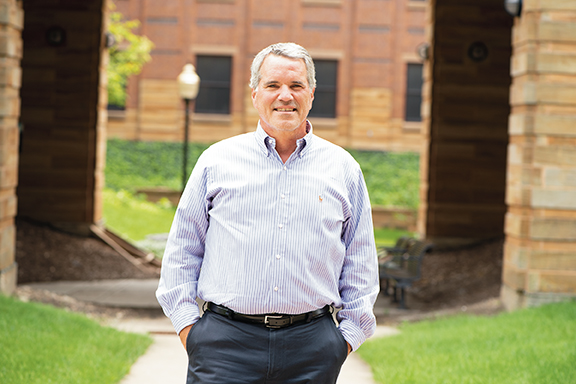United States Department of Agriculture-National Institute of Food and Agriculture (USDA-NIFA) has awarded a $500,000 grant to a research team led by Dr. Peter Foreman, associate professor in the Department of Management and Quantitative Methods.
The three-year grant runs through 2023. Foreman is the project director and co-principal investigator for the research team, which also includes co-principal investigator Dr. Randall Westgren, a professor in the Department of Agricultural Economics at the University of Missouri, and senior researcher Lucy McGowan, a graduate assistant in the same department.
Appears InThis project examines the phenomenon of collective action among rivals in competitive markets and how buyers in those markets assess the value created through such collective action. The research follows a prior NIFA-funded study, which examined the role of identity and culture in collective action among members of wine trails and artisanal cheese associations. The prior study assessed members’ perceptions and evaluations of their collective’s identity and how those affected their involvement in and commitment to the group.
This project aims to “close the loop” by examining external views of collective identities and evaluating the relative congruence between the two views. To do this the researchers are assessing customers of these collectives—wine trail visitors in Missouri, New York, and Pennsylvania and artisanal cheese distributors in New York and Vermont.
The researchers expect that identity congruence—consistency between the views of members and customers—is critical for effective brand-building and collective marketing efforts. Additionally, they believe that identity congruence will be associated with increased buyer evaluations of the legitimacy and value added of the collective.
Wine trails and cheese associations provide pathways for members to achieve economic success by increasing visibility, expanding the customer base, and sharing the costs and risks of brand-building. There is a public interest in developing and supporting them as a means of expanding rural economic development. This research provides insight into some of the important factors that contribute to establishing and maintaining a successful collective.

